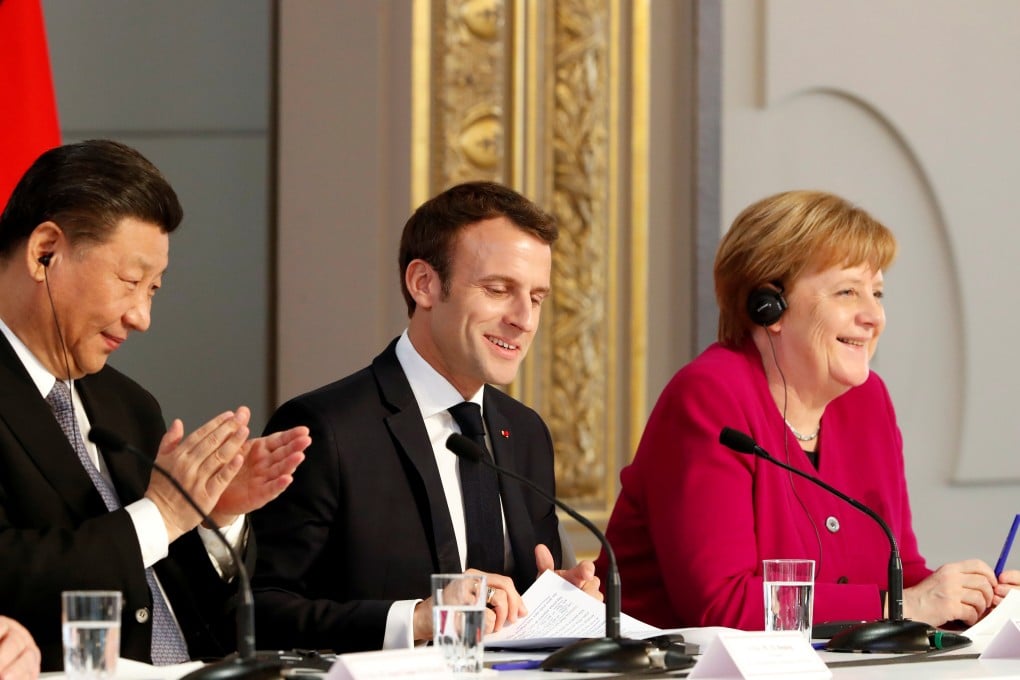Macron and Merkel hope climate talks with Xi can help take sting out of China-EU tensions
- Trilateral discussion between French, German and Chinese leaders seen as attempt to find common ground after weeks of tension
- Friday’s phone call is billed as preparation for two-day summit hosted by US to discuss climate issues

It is the latest effort at de-escalation from Europe’s most powerful national leaders, following Merkel’s call with Xi last week, which came on the heels of a fiery exchange of sanctions that threaten to upend an EU-China investment deal.
Europe has vowed to base future relations with China on a strategy of “cooperate, compete and confront”, with climate being viewed as one of the few areas in which cooperation is currently possible.
“Many European politicians hope that climate change will be an area where we can still work well together, to a certain extent this is an idealistic attempt to prevent us from not working together at all, and to prevent the relationship from falling apart entirely,” said Bernhard Bartsch, an analyst at the Mercator Institute for China Studies in Berlin.
China’s swift retaliation to the EU’s first sanctions since the Tiananmen Square crackdown of 1989 is said to have alarmed senior EU leaders. Both France and Germany are strong backers of the Comprehensive Agreement on Investment (CAI), the bilateral pact that took seven years to negotiate.